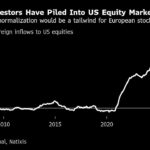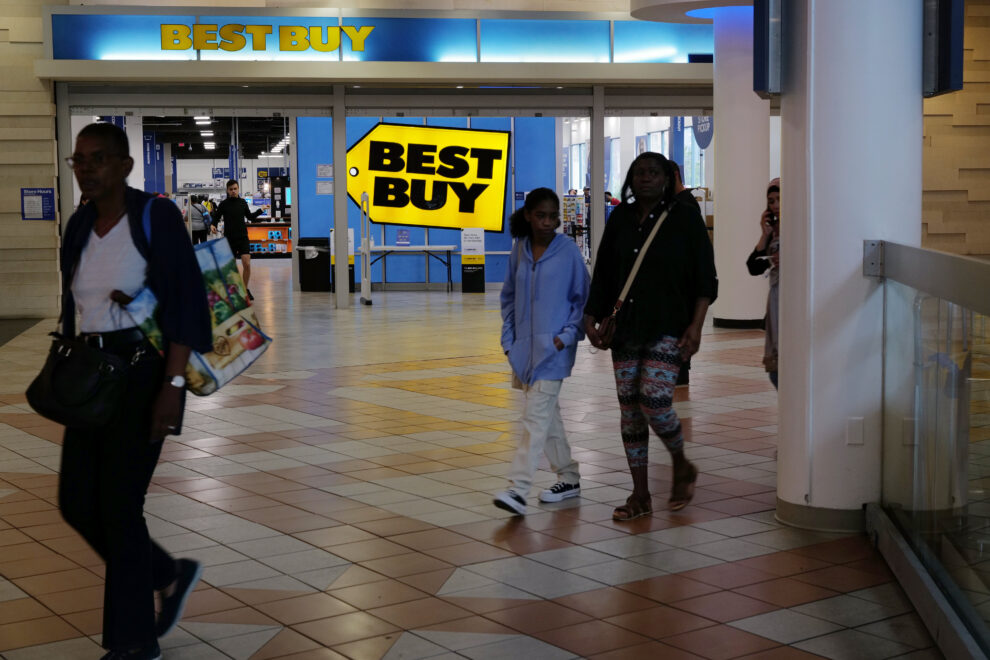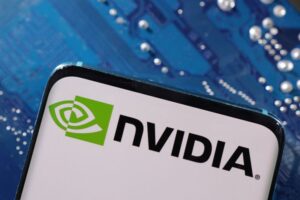
Best Buy raised its fiscal-year profit guidance Thursday after exceeding earnings and revenue expectations for the most recent quarter.
Shares of Best Buy jumped more than 15% in morning trading Thursday.
The retailer now expects to see full-year adjusted earnings per share in the range of $6.10 to $6.35, up from a prior range of $5.75 to $6.20. The company, however, lowered the top end of its guidance ranges for both full-year revenue and comparable sales.
“As we look to the back half of the year, we expect our industry to continue to show increasing stabilization,” Best Buy CFO Matt Bilunas said in the company’s press release.
Here’s how the consumer electronics retailer did for the period ended Aug. 3 compared with what Wall Street was anticipating, based on a survey of analysts by LSEG:
- Earnings per share: $1.34 vs. $1.16 expected
- Revenue: $9.29 billion vs. $9.24 billion expected
The company reported net income for the quarter of $291 million, or $1.34 per share, compared with $274 million, or $1.25 per share, a year earlier.
Net sales in the quarter dropped to $9.29 billion from $9.58 billion during the same period a year earlier.
Comparable sales declined 2.3% during the quarter, compared with a 6.2% fall a year earlier.
That drop in comparable sales was the company’s best result for the metric since the fourth quarter of fiscal 2022, CEO Corie Barry said on the company’s earnings call.
Barry said the industry is returning to growth, adding that Best Buy’s positioning within the sector is helping the retailer “to capture that growth trajectory.”
Best Buy has been in the midst of an attempted turnaround in response to a two-year sales slump. Discretionary merchandise retailers across the board have struggled with softer consumer demand in the wake of unusually high sales throughout the Covid pandemic and as consumers pull back due to elevated inflation.
As the much-awaited replacement cycle of pandemic-era tech purchases starts trickling in, the retailer is hoping to cash in through marketing and operational initiatives. Best Buy said in July that it would add trained sales teams to three key parts of its stores — computing, appliance and home theater — and kick off a marketing campaign that includes YouTube videos to draw consumer interest.
The company was also betting on a wave of new tech gadget debuts, such as a collection of new iPads launched by Apple in May and artificial intelligence-enabled laptops touted by Microsoft, to drive sales.
The company on Thursday posted comparable sales growth of 6% in the domestic tablet and computing categories. However, that was “more than offset” by declines in appliances, home theater and gaming, executives said.
Barry added that AI could continue to boost sales across categories over the next few years.
“We believe we are just at the beginning of the impact of AI on tech innovation and customer demand,” she said.
Best Buy has seen a doubling in the number of consumers choosing to trade in old electronics for new ones, which Barry said is “another indicator that people are wanting to renew and refresh” their current tech gadgets.
“We capitalized on demand driven by our customers’ desire to replace or upgrade their products, combined with new innovation,” Barry said during the company’s earnings call. “We see a consumer who is seeking value in sales events and one who is also willing to spend on high-price-point products when they need to or when there is new, compelling technology.”
Still, the consumer environment continues to be “unpredictable and uneven,” Barry said, citing the upcoming election and the holiday season.
“There’s probably an even greater risk that the consumer is a little bit unsettled” in the back half of the year, she said.





